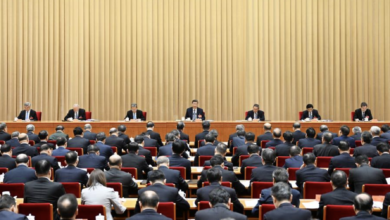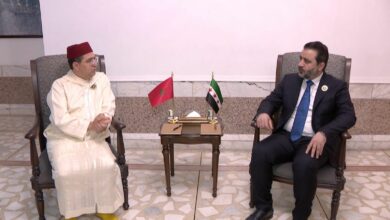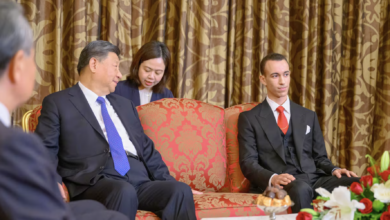POLITICSWORLD NEWS
Italian Press Exposes Polisario, Algeria and Iran Collusion: A Dangerous Triangle Threatening Europe and the West
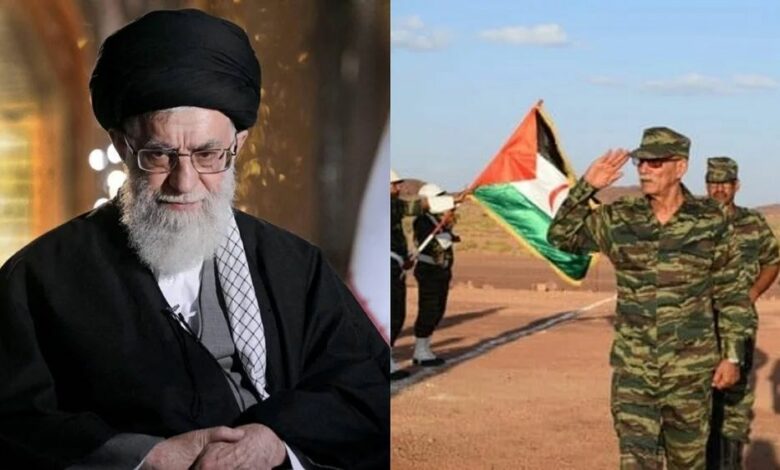
ALDAR/ Meryem Hafiani
In a report published on September 16, 2025, by the Italian magazine Panorama, journalist Stefano Piazza warns of the emergence of a highly dangerous triangle of instability, led by the Polisario Front with direct support from the Algerian regime and under the sponsorship of Iran. According to him, this triangle directly threatens security in the Sahara, the Sahel region, the Mediterranean, and Europe as a whole.
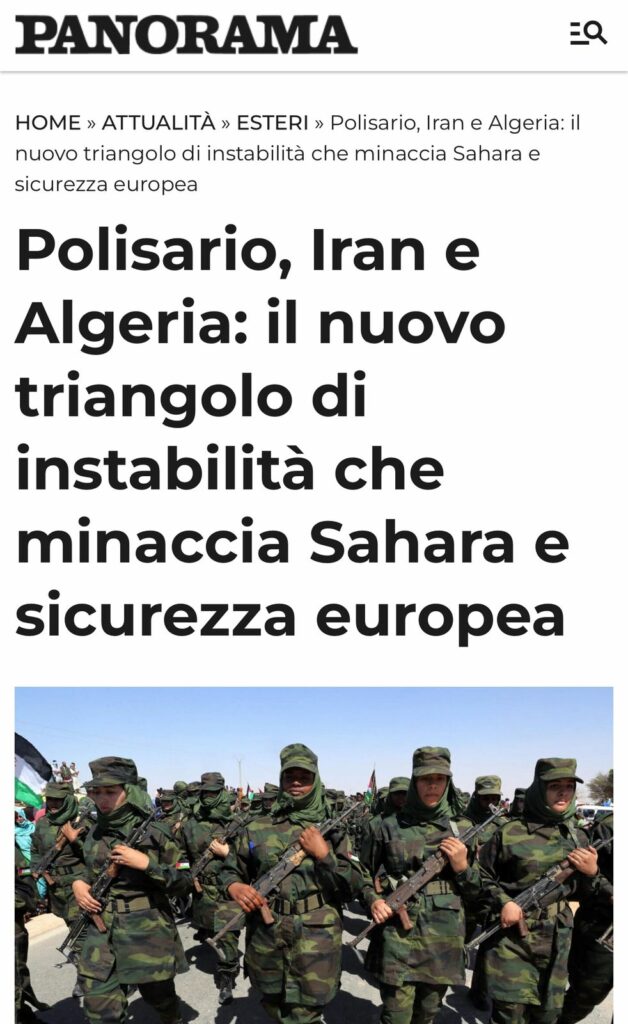
The report stresses that the United States is urged to accelerate the opening of its consulate in Dakhla, a concrete step to consolidate its recognition of Morocco’s sovereignty over the Sahara, a recognition formalized in 2020 under President Donald Trump. An American think tank also recommended placing the Polisario on the list of Foreign Terrorist Organizations, given its armed activities and ties with extremist networks.
For Stefano Piazza, the Polisario is no longer just a local territorial dispute; it has become a multiplier of chaos and instability, thanks to Algeria’s support and growing ties with Iran and its regional proxy, Hezbollah. The report defines this triangle of dubious interests as follows:
•Algeria: the political and military sponsor.
•Iran: the financier and arms supplier.
•Hezbollah: the training and military structuring hub.
According to Piazza, this web of alliances complicates any attempt at a political solution to the Sahara issue and turns the region into a new focal point for geopolitical conflicts threatening Morocco and its Western allies.
The report also highlights the tragic plight of tens of thousands of Sahrawis confined in the Tindouf camps, where they have lived for decades in miserable conditions, deprived of water, healthcare, and education. Humanitarian organizations have denounced repeated embezzlement of international aid, part of which is diverted to fund the Polisario’s military activities.
The journalist warns that these camps could become breeding grounds for jihadist recruitment, much like the Sahel region, which has produced dangerous terrorist leaders such as Adnan Abu al-Walid al-Sahrawi, a former Polisario member who became one of the top leaders of ISIS in the Greater Sahara before being killed in Mali in 2021 by French forces.
The report underscores Algeria’s central role, noting that for decades it has provided refuge, protection, and financial, logistical, and political backing to the Polisario leadership in Tindouf. The rocket attacks targeting the Green March Festival near Morocco’s border in November 2024 were launched from that area, which Rabat described as a “direct provocation” from Algerian territory.
Thus, according to Panorama, Algeria is not merely supporting a separatist movement: it is using the Polisario as a tool to settle its historical disputes with Morocco while simultaneously opening the door for Iran and Hezbollah to gain a foothold in North Africa. This creates an even greater threat in the Sahel, already overrun by terrorist organizations.
Stefano Piazza concludes that this tripartite alliance between the Polisario, Algeria, and Iran is no longer a local issue concerning only Morocco. It has become a regional and international danger that threatens Europe’s and the West’s strategic interests, turning the Sahara into a new hotspot of instability and cross-border terrorism.


